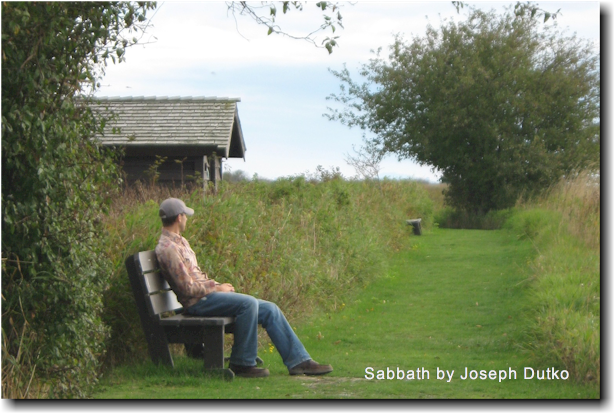Learning Not to Ignore the Fourth Commandment
The Sabbath has always disturbed believers. We’ve demoted, altered, abrogated, and challenged its place in the heart of the Lord God. From the very beginning (Genesis 2:3) God set aside a day of rest; i.e., He made it holy, setting it aside and designing it, like all His commands, to help people be and stay closer to God. But…
- Modern believers have demoted God’s commandment to an anachronism of Judaism.
- Reformation believers altered the fourth commandment by stipulating believers observe the Sabbath on the first day of the week, regardless of the witness of Scripture.
- Pharisee believers abrogated the Sabbath; i.e., obedience became an artform of religious chest-beating, rather than a means of spiritual refreshment, a day made for humans (Mark 2:27).
- Pre-Law believers challenged its observation (Exodus 16:23ff); to say nothing of those who had the fully articulated Law (cf., Nehemiah 13:15ff; John 9:13ff).
 The Sabbath is important to the Lord God. Consequences for violation were, and are, dramatic. When the Sabbath was not observed under the Law of Moses, death could result (Numbers 15:32ff). Today, the consequences of failing to observe Sabbath are even more obvious—and deadly—stress has been clearly linked to heart disease, asthma, obesity, diabetes, headaches, depression, GI problems, and Alzheimer’s (see http://tinyurl.com/3zd9x7p)
The Sabbath is important to the Lord God. Consequences for violation were, and are, dramatic. When the Sabbath was not observed under the Law of Moses, death could result (Numbers 15:32ff). Today, the consequences of failing to observe Sabbath are even more obvious—and deadly—stress has been clearly linked to heart disease, asthma, obesity, diabetes, headaches, depression, GI problems, and Alzheimer’s (see http://tinyurl.com/3zd9x7p)
My Jesus observed the Sabbath; thus, it is clearly part of our Christian heritage (c.f., Hebrews 4:9). Why did the Lord God create the Sabbath principle? God loves us; He deserves to be glorified while we’re here on earth and beyond. It’s difficult to do so when dead, coughing, fat, depressed, and/or with dementia.
And for those of you like me from Missouri, nothing shows you more about how central the Lord God is to your life when you stop everything and think on Him. It’s hard. We’re all so wrapped up in doing, doing, doing. And then we’re done, or are we? Sabbath teaches us to see there’s more to living than doing. And, ironically, our doing becomes more abundant. A glimpse of what’s to come?
God is smart. He doesn’t desire our obedience to fulfill some fascist, narcissistic personality. All of God’s commands are designed to bring us closer to Him; i.e., to be blessed by Him. When we are closer to Him, He can be glorified, and we get to bask in that glory. Observe Sabbath—Jesus did.
